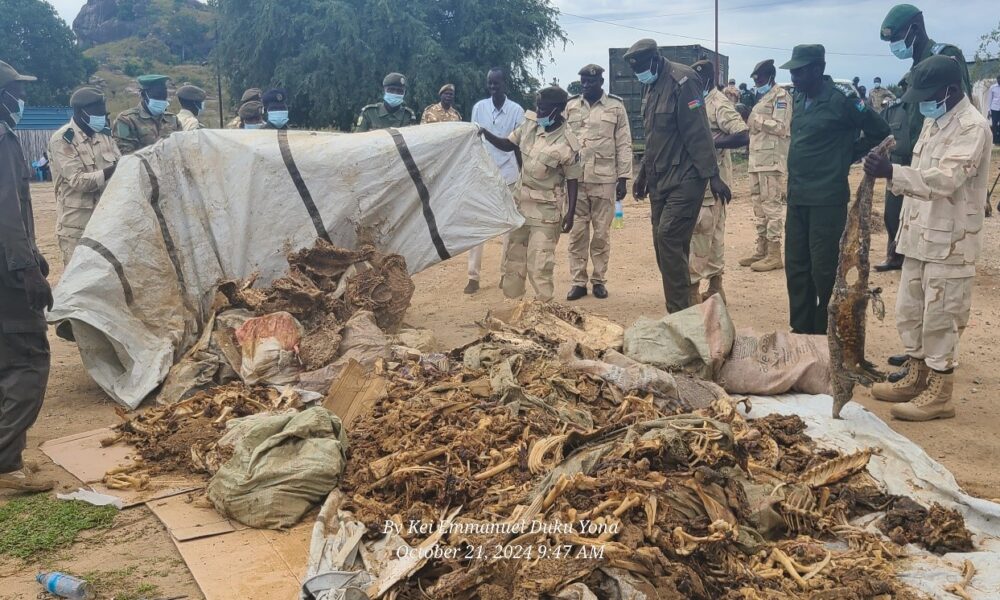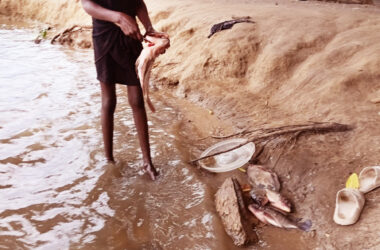By Kei Emmanuel Duku
Ministry of Wildlife Conservation and Tourism has destroyed approximately five to six tons of wildlife products seized in the past six months.
The items, including antelope meat, crocodile skin, 18 tiger skins, and warthog, were burned on Monday in Juba.
Colonel John Chol Adui, Operations Commander of the South Sudan Wildlife Service (SSWS), attributed the increase in illegal poaching to the presence of firearms in civilian hands.
“We have confiscated various types of hunting equipment, but the use of guns remains the biggest threat to wildlife loss in the country,” he said.
The country’s six national parks and 12 game reserves are under threat from poaching, illegal charcoal burning, and logging.
The burning of the seized products was intended to regain public trust after allegations that wildlife officials were consuming confiscated bush meat.
The Director General of the South Sudan Wildlife Service, Khemis Adiang Diing, explained that the disposal of the seized items was delayed due to slow court proceedings.
Most of the seizures were made at security checkpoints along highways leading to Juba and airports, as well as within game parks and reserves.
“We conduct routine operations based on requests or suspected poacher activity,” Diing said. “We also have personnel at airports to monitor incoming and outgoing travelers.”
The ministry has focused on both poachers and illegal charcoal dealers in the past year. Jongeli and Eastern Equatoria States are hotspots for illegal poaching and wildlife trafficking due to their proximity to borders with Uganda and Kenya.
“People claim to be killing animals in self-defense or for domestic consumption,” Diing added. “The use of firearms is our biggest challenge.”
The Wildlife Service is working with African Parks to raise awareness about wildlife conservation, train game rangers, and use cameras to monitor poachers and locate wild animals.
In Western Equatoria State, African Parks is promoting beekeeping as a livelihood initiative to support local communities.
However, the rampant poaching in Jongeli State has been attributed to the worsening economic situation forcing many citizens to turn to wildlife hunting to provide food for their families.
“Civil servants’ salaries are often delayed,” Wani said. “Others poach due to lack of food or to earn money for education. These factors contribute to the excessive killing of animals in the Jongeli Landscape Area.”
Cultural practices have also played a role in the extinction of certain animal species, such as tigers and leopards. Their skins are used in traditional activities like wrestling.
A recent wildlife census in South Sudan revealed the country’s significant biodiversity, including the Great Nile Migration, the largest land mammal migration on Earth.
This comprehensive survey, conducted by African Parks and the Ministry of Wildlife Conservation and Tourism, documented nearly 6 million antelope in the Boma-Badingilo-Jonglei landscape.



